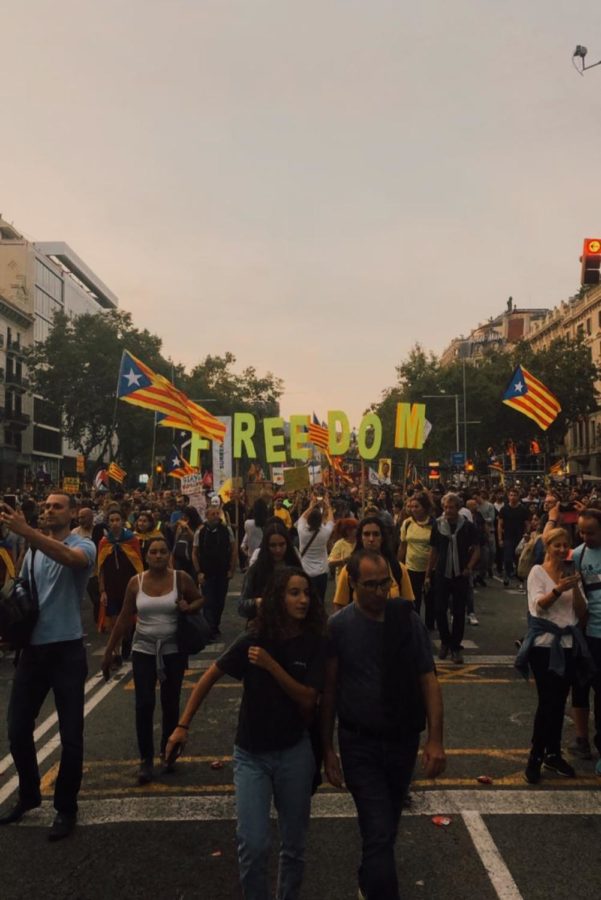Typical American Student Endures Not So Typical Foreign Conflict
Do you wonder what life is like for senior Emma Kotchen, who is living abroad with her family?
October 27, 2019
Gathered around the communal dinner table at 10 p.m., on Thursday, Oct. 17, Emma Kotchen, along with her parents and two brothers, nervously anticipate the upcoming day.
Three months prior, the family adventures from Neenah to the unpredictability of Barcelona, Spain. Now, they sit in their four-bedroom apartment preparing to experience what their ancestors had 240 years ago. Barcelona is experiencing a similar event to that of the American Revolution; a group of individuals known as Catalans is protesting for independence from Spain.
According to the BBC, Catalonia — located in the northeast section of modern Spain — contains Spain’s wealthiest and most protected regions dating back thousands of years. Today, more than 7.5 million Catalans exist taking up 15 percent of Spain’s population.
The largest protest for the cause is set to take place Friday in the streets of the family’s new home. Kotchen makes her way to her compact bedroom weary of what is to come. As an American, she never experienced such heated political conflict.
In the morning she finds her way to the living room with the television already streaming the events of the day. But she is not dependent on the media; with her apartment in the middle of the city, she can experience the event by glancing out her window.
Kotchen’s Friday drastically differs from her typical weekday of school and exercising. As if the city is locked down for the purge, all schools, public transportation and businesses are closed for the event.
Initially, the protests began peacefully; families gathered in support of their beliefs. As the day progressed, the protest picks up momentum; civilians make their way from surrounding suburbs and cities.
Mid-day, Kotchen decides to venture into the streets along with caution and several of her new friends. Unable to take a stance, she experiences the event as a fly on the wall. Making her way down the main street, Kotchen witnessed hundreds of thousands of people peacefully chanting and whistling.
Later in the night, the extremists emerge, creating a change in the atmosphere. Kotchen witnessing a large cloud of smoke caused by the Catalan’s fires. The extremists incite trash cans of fire to attract police officers, and they ambushing them with fireworks and broken bottles. No longer did Kotchen feel safe.
She feels the extremist paint a bad light on the protest, “The majority of the movement has been viewed by the media as huge attacks by extremists, but the vast majority are just families, only getting violent during the night from a small group of people.”
Less extreme protests will continue until the Catalans are given a chance to vote for freedom, which is scheduled to occur later this month. As noted by Al Jazeera, officials vote on the referendum Friday, Oct. 27; if successful, Catalan’s will be one step closer to achieving its freedom.



